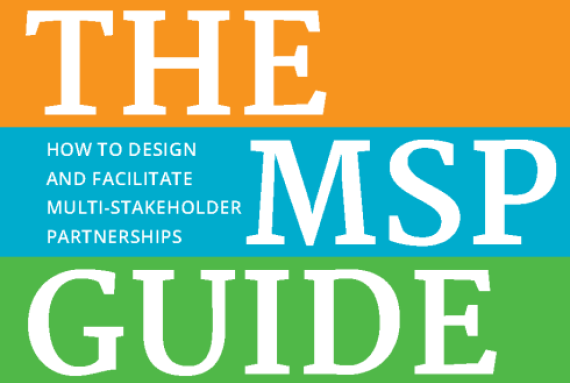As an example, CDI supported efforts to improve the seed sector in the West Nile region of Uganda. Key reforms were: empowering local farmer groups with the skills to produce and market quality seeds and strengthening local governance to get rid of the fake seed shops.
CDI, which is part of Wageningen UR, drew up a guide to getting results in a development programme, including practical advice, step-by-step plans and the possible pitfalls. The key to its Multi Stakeholder Partnerships (MSPs) is bringing together everyone involved to define and discuss a common problem or aspiration in order to make all stakeholders part of the solution.
In Uganda CDI guided a programme to improve smallholder farmers’ access to high quality seeds. Farmers get poor crop yields, due to dealers selling fake seeds to farmers and poor access to foundation seed from the research institute. How can we improve the seed quality, Francis Okot and Karen Verhoosel of CDI asked all the seed sector stakeholders. They talked with the national seed companies, the local seed dealers, the national agricultural research organization that delivered basic seed, the district authority, farmers’ representatives, NGOs, and banks that provided loans to the farmers.
After those stakeholders had described the bottlenecks individually, they discussed the issues and identified the actions to be taken. A top priority that emerged from this process was the fake seeds on the West Nile seed market. As a result of this MSP, new regulations empowered district authorities to close fake seed shops, explains Okot.
To get this result, it was vital for all the stakeholders to put all their wood behind one arrow. The local seed producers, trained by the CDI programme, were engaged in quality seed production for crops like cassava, beans, sorghum and sesame seed. Eager to keep their share in the booming seed business in Uganda, members of the seed traders’ association started to monitor the seed shops down the road and clean up the market, getting rid of fake dealers. But the district government played its part in the solution too. Resolutions were passed so that district agriculture officers can monitor seed fraud and reject poor quality seeds.
It was crucial, says Okot, that the participants arrived at a shared definition of the problems and gained trust. This demands a lot of talking, negotiating, reassurance, involving high level people, visiting each other’s offices and taking people to the field. ‘And – very important – create small and concrete results.’ Okot, who is a plant breeder by profession, played the role of facilitator in the Integrated Seed Sector Development programme in Uganda. He is now looking at how to transform the local farmers into commercial seed suppliers. This process is part of the overall goal too: to create a viable, pluralistic and market-oriented seed sector in Uganda.
The MSP Guide is meant for professionals who want to improve their facilitation skills in development programmes, says Herman Brouwer, one of the authors of the guide. This may sound soft, but you can even solve serious political and commercial conflicts with this approach. Brouwer points to the story in the guide of former Dutch ambassador Bert Ronhaar, who started an MSP about the environmental problems in the Niger Delta in Nigeria. He invited Shell to discuss the problems with the Nigerian government, NGOs and local chiefs, and they arrived at an agreement in this long-lasting bloody conflict.

